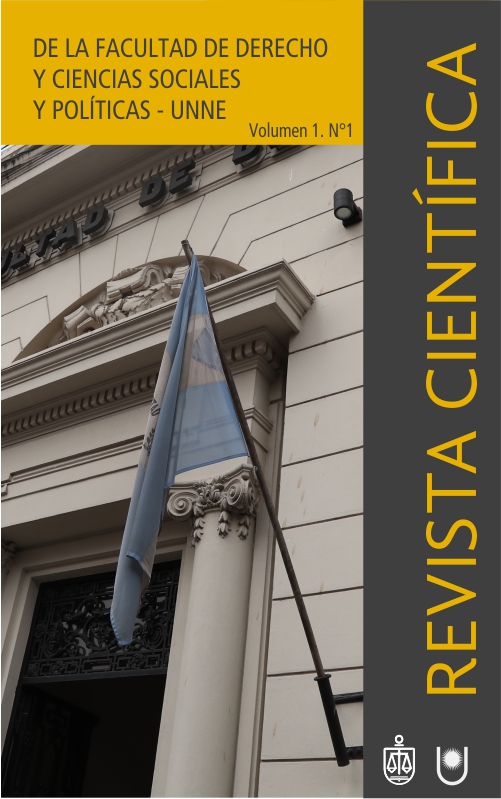Le droit codifié est-il plus scientifique que le Common Law? Les débats anglo-americains des années 1820-1835
DOI :
https://doi.org/10.30972/rcd.116150Mots-clés :
Case Law, Interdiscursivité, Bentham, Savigny, Code NapoléonRésumé
Durant les années 1820-1835, le monde des juristes anglo-américains s’est embrasé autour de cette question centrale : faut-il abolir le common law et lui substituer un système de droit codifié. A l’occasion de cette Codification Controversy, les contradicteurs ont, pour la première fois, débattu de la scientificité respective des deux systèmes. Les codifiers ont prétendu que les codes étaient plus scientifiques parce qu’ils réduisaient la complexité du droit à des principes et des règles simples et clairs qu’il suffisait ensuite d’appliquer aux comportements humains. Les common lawyers ont prétendu que le common law était plus scientifique parce qu’il permettait aux juges, à partir de la raison et des réalités humaines, de construire un système non écrit de principes et de règles reconnus et appliqués comme obligatoires. Mais il faut se méfier d’une lecture trop simpliste et prendre ce double argumentaire pour une double opinion doctrinale assumée. En réalité, les auteurs débattent de la scientificité autant par stratégie discursive que par objectivité argumentative. Dans un contexte d’interdiscursivité et de combat à mort contre leurs adversaires, ils doivent, coûte que coûte, répliquer et convaincre l’opinion publique.Références
Alland, D. et Rials, S. (2003). Dictionnaire de culture juridique. PUF.
Baranger, D. (1997). Bentham et la codification. Droits. Revue française de théorie, de philosophie et de culture juridique.
Bauer, E.K. (1999). Commentaries on the Constitution 1790-1860. The Lawbook Exchange.
Blommaert, J. (2005). Discourse. A Critical Introduction. CUP.
Bloomfield, M. (1967). William Sampson and the Codifiers: The Roots of American Legal Reform. The American Journal of Legal History.
Buck, A.R. (1995). Property, aristocracy and the reform of the land law in early Nineteenth-century England. The Journal of Legal History.
Burns, J.H. (1989). Bentham and Blackstone: a Lifetime’s Dialectic. Utilitas.
Brown, R. (2000). Revolution, Radicalism and Reform. England 1780-1846. CUP.
Cane, P. et J. Conaghan, (2008). The New Oxford Companion to Law. OUP.
Charaudeau P. et Maingueneau, D. (2009). Dictionnaire d’analyse du discours. Seuil.
Charaudeau, P. (2017). Le débat public, entre controverse et polémique: enjeu de vérité, enjeu de pouvoir. Lambert-Lucas.
Cappalli, R.B. (1997). The American Common Law Method, Transnational
Publishers.
Caravale, M. (2005). Alle origini del diritto europeo: ius comune, droit commun, common law. Monduzzi.
Collins. (2006). Dictionary of Law. https://legal-dictionary.thefreedictionary.com/Common+law+system
Cook, C.M. (1981). The American Codification Movement: A Study of Antebellum Legal Reform. Greenwood Press.
Cosgrove, R. (1996). Scholars of the Law: English Jurisprudence from Blackstone to Hart. New York University Press.
Dainow, J. (1966). The civil law and the common law : some points of comparison. American Journal of Comparative Law.
Dinwiddy, J.R. (1992). Radicalism and Reform in Britain, 1780-1850. The
Hambledon Press.
Edwards, E. (2009). The People and their Peace: Legal Culture and the Transformation of Inequality in the PostRevolutionary South. The University of North Carolina Press.
Gerald J. (1989). Postema, Bentham and the Common Law Traditions. Clarendon Press.
Gordon, R. (1983). The American Codification Movement. Faculty Scholarship. Series, 1370.
Grimke, T. (1827). An Oration on the Practicability and Expediency of Reducing the Whole Body of the Law to the Simplicity and Order of a Code. Charleston.
Grossberg M. et Tomlins C. (2008). The Cambridge History of Law in America. CUP.
Guzmán Brito, A. (2009). Las fuentes de las normas sobre interpretación de la leyes del Digeste des lois civiles (Code civil) de la Luisiana (1808/1825). Revista de estudios histórico-jurídicos.
Guyon, G. (2012). Les partisans de la codification en Angleterre. La question du droit pénal entre utilitarisme, modernisation du common law et modèle juridique français. [Thèse Droit]. Université de Rennes 1.
Haakonssen. K. (1981). The Science of a Legislator. The Natural Jurisprudence of David Hume and Adam Smith. CAP.
Halpérin, J.L. (2000). L’approche historique et la problématique du Jus commune. Revue Internationale de Droit Comparé.
Huselbosh, D. (2009). Debating the transformation of american law : James Kent, Joseph Story, and the legacy of the Revolution. Hamilton D. et Alfred L. Brophy (éd.), Transformations in American Legal History: Essays in Honor of Professor Morton J. Horwitz. HUP.
Humphreys, J. (1826). Observations on the Actual Situation of English Laws of Real Property, with the Outlines of a Code. Murray.
Johnson, J.H. (1925). The reform of real property law in England. Columbia Law Review.
Spring, E. (1977). Landowners, Lawyers, and Land Law Reform in Nineteenthcentury England. The American Journal of Legal History.
King, P.J. (1986). Utilitarian Jurisprudence in America: The Influence of Bentham and Austin on American Legal Thought in the nineteenth-century. Taylor & Francis.
Kiralfy, A.R. Glendon M.A. et Lewis, A.D. (s/f). Common law. Encyclopædia Britannica. https://www.britannica.com/topic/common-law.
Kellog. F. R. (2003). Holmes, common law theory, and judicial restraint. John Marshall Law Review.
Kilbourne, R.H. (1987). A History of the Louisiana Civil Code : The Formative Years, 1803-1839. Louisiana State University Press.
Langbein, J. Lettow Lerner R. et Smith, B.P. (2009). History of the Common Law: the Development of Anglo-American Legal Institutions. Aspen Publishers.
Liebermann, D. (1989). The Province of Legislation Determined : Legal Theory in Eighteenth Century Britain. CUP.
Horwitz, M. (1977). The Transformation of American Law, 1780-1860. HUP.
Hoeflich, M. (1997). Roman and Civil Law and the Development of Anglo-American Jurisprudence in the nineteenth-century. University of Georgia Press.
Lobban, M. (1991). The Common Law and English Jurisprudence, 1760-1850. Clarendon Press,
Macias, S.J. (2016). Legal Science in the Early Republic: The Origins of American Legal Thought. Lexington Book.
Maingueneau D. (1977). L’analyse du discours. Hachette.
Miller, P. (1949). The common law and codification in Jacksonian America.
Proceedings of the American Philosophical Society.
Miller, F.T. (1994). Juries and judges versus the law : Virginia’s provincial legal perspective, 1783-1828. The University of Virginia Press.
Mergey. A.- S. Soleil. (2019). Faut-il codifier le common law des Etats-Unis ? La controverse Sampson v. Du Ponceau (1823-1826). La controverse. Société de Législation Comparée.
Nelson, W.E. (1975). Americanization of the Common Law : the Impact of Legal Change on Massachusetts Society, 1760-1830. Harvard University Press.
Palmer, V. (1999). Two worlds in one: The genesis of Louisiana’s mixed legal system, 1803-1812. A Microcosm of a Mixed Jurisdiction. Carolina Academic Press.
Petronio, U. (2002). La lutte pour la codification. Giappichelli.
Park, J.J. (1827). A Contre-Projet to the Humphreysian Code : and the Projects of Redaction of MM. Hammond, Uniacke, and Twiss, James & Luke.
Padoa-Schioppa, A. (2007). Storia del diritto in Europa. Dal Medioevo all’età contemporeana. Il Mulino.
Pêcheux, M. (1975). Les vérités de La Palice. Maspéro.
Schulze, R. (1995). Le droit privé commun européen. Revue Internationale de Droit Comparé.
Scweber, H. (1999). The ‘Science’ of legal science: the model of the natural sciences in nineteenth-century American legal education. Law and History Review.
Sherry, S. (1992). Natural law in the States. University of Cincinnati Law Review.
Sheppard, S. (éd.) (1999). The History of Legal Education in the United States: Commentaries and Primary Sources. Salem Press.
Slapper G. et Kelly, D. (2013). The English Legal System. Routledge.
Smith, K.J. (1999). Anthony Hammond, Mr. Surface’ Peel’s persistent à codifier. Journal of Legal History.
Soleil, S. (2020 - 1). Superseded and lost sight of? The Argument of the Code Napoleon during the Anglo-American Controversy of the Codification of Common Law (1820-1835). American International Journal of Social Science.
Soleil, S. (2020 - 2). On the Vocation of our Age for Codes. Le recours à Savigny lors de la controverse anglo-américaine sur la codification du common law (1820-1835). Historia & ius, n°18, p. 1-31. http://www.historiaetius.eu/num-18.html.
Soleil, S. (2021). Aux origines de l’opposition entre systèmes de droit codifié et de common law. Les controverses angloaméricaines (1820-1835). SLC.
Story, J. (1832). Commentaries on the Law of Bailments with Illustrations from the Civil and Foreign Law. Hilliard & Brown
Stein, P. (1966). The attraction of civil law in post-revolutionary America. Virginia Law Review.
Thompson, P. (1826). Sampson’s Discourse, and Correspondence with Various Learned Jurists, Upon the History of the Law, with the Addition of Several Essays, Tracts, and Documents, Relating to the Subject. Gales
& Seaton.
Van Caenegem, R.C. (2002). European Law in the Past and the Future. Unity and Diversity over Two Millennia. CUP
Vanderlinden, J. (1964). Code et codification dans la pensée de Jeremy Bentham.Tijdschrift voor Rechtsgeschidenis.
Weiss, G.A. (2000). The enchantment of codification in the common law world. Yale Journal of International Law.
Wynne, E. (1822). Eunomus or, Dialogues concerning the Law and Constitution of England, with an Essay on Dialogue. Sweet.
Téléchargements
Publiée
Versions
- 2024-03-20 (2)
- 2022-10-13 (1)







52.jpg)






